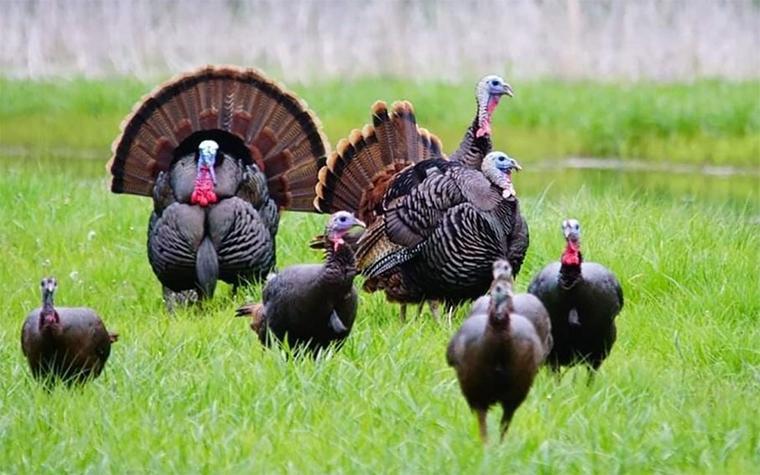
Antlers, Anglers and Ag event brings together farmers and outdoorsmen
NOVELTY, Mo. – University of Missouri Extension and partners will hold the first Antlers, Anglers and Ag: Elevating Today’s Outdoorsmen for Tomorrow’s Harvest event Saturday, March 28, at the MU Lee Greenley Jr. Memorial Research Farm in Novelty.
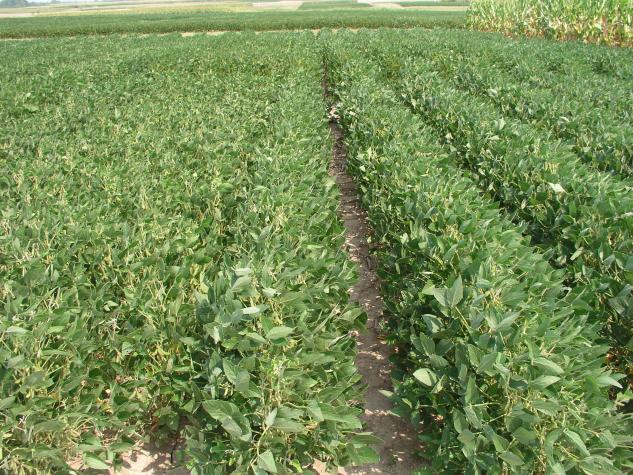
State Line Crop Conference offers speakers from MU, K-State
The annual State Line Crop Conference offers updates from University of Missouri Extension and Kansas State Extension researchers. The free event is 9 a.m. to 3 p.m. Thursday, Feb. 19, at First Baptist Church Family Life Outreach Center, 1301 E. Sixth St., Lamar, said MU Extension field agronomist Micah Doubledee.
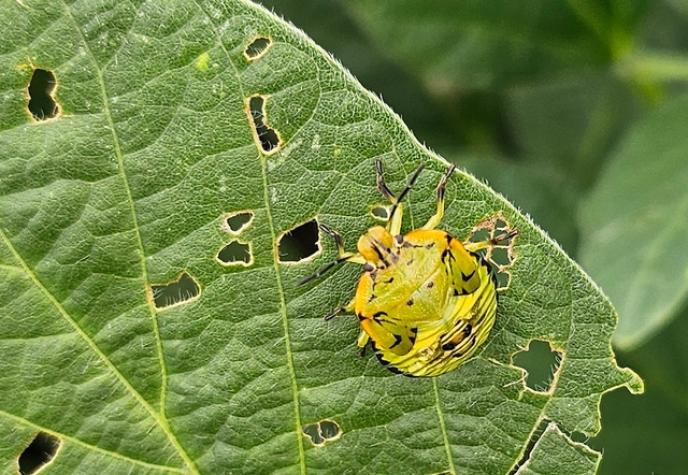
Watch for stink bugs in crops in 2026
COLUMBIA, Mo. – Something’s been stinking in Missouri soybean, corn and cotton crops since the 1990s. University of Missouri Extension state field crops and forage entomologist Ivair Valmorbida says stink bugs feed on a variety of plant species, including corn and soybeans.

SW MO Beef Cattle Conference set for Feb. 27 in Springfield
MU Extension is partnering with Missouri State University to provide the SW MO Beef Cattle Conference, which will educate cattle producers on a variety of current topics in the cattle industry. The conference is MSU's Darr Agricultural Center in Springfield.

Registration open for Feb. 18-19 grain marketing workshop
COLUMBIA, Mo. – University of Missouri Extension, with support by Missouri Corn Producers and their checkoff, is offering corn and soybean producers a opportunity to strengthen their marketing skills through the “Basics of Grain Marketing Workshop,” set for Feb. 18-19 at the Boone County Electric Cooperative in Columbia.
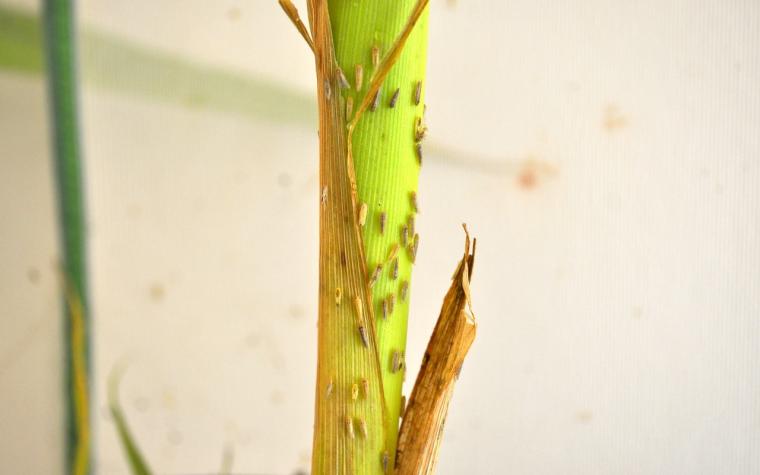
Scout early and often for corn leafhopper in 2026
COLUMBIA, Mo. – University of Missouri Extension in-field research in 2025 cornfields showed less damage from corn leafhopper than in 2024. MU Extension state crops and forage entomologist Ivair Valmorbida is happy about that, but he is unsure why this happened. “It is possible that corn leafhoppers arrived later in the season compared to 2024, as they do not truly overwinter in Missouri,” Valmorbida says.
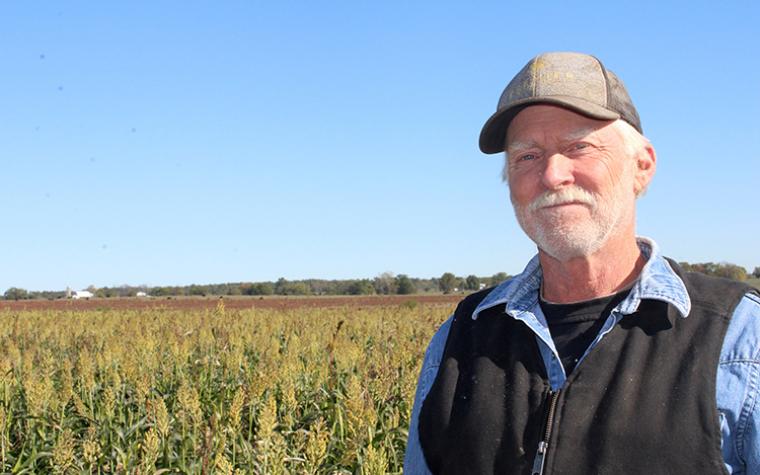
Producer enjoys continued success with milo grazing
University of Missouri Extension specialists find that producers see up to $300 savings in feeding costs per calf when their livestock graze standing milo through the winter.
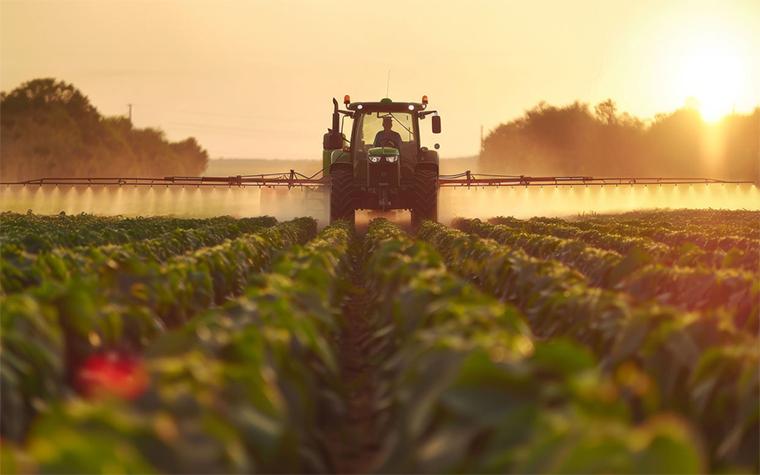
Register for the Missouri Crop Management Conference
Registration is open for the state’s premier agricultural conference for farmers and ag industry professionals, the Missouri Crop Management Conference, Dec. 9-10 in Columbia.
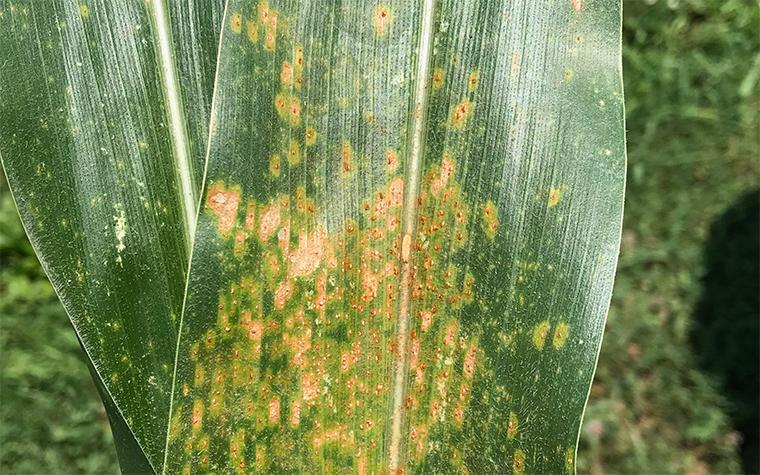
Southern rust can affect nutrient value of winter feed
Southern rust, a fungal disease, can reduce nutrients and lower digestibility in infected corn fed to livestock, says MU Extension agronomist Nick Wesslak. Early dry down caused by southern rust can cause problems with proper silage packing, which increases risk of poor fermentation and higher mold and yeast populations.
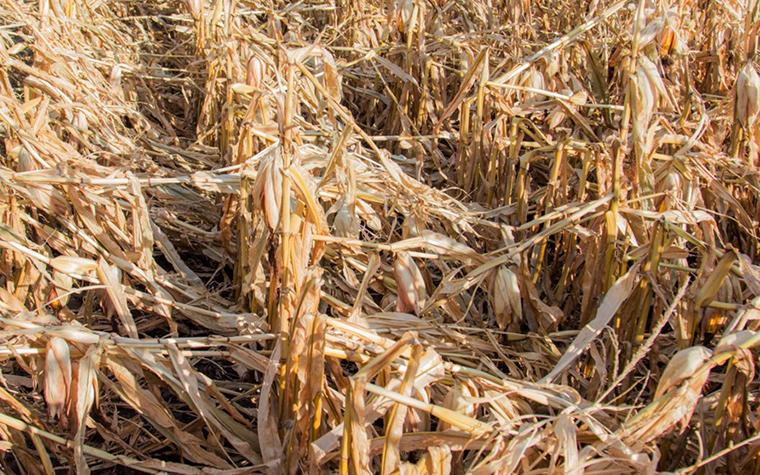
Data-driven insights for harvest timing
The MU Extension publication “Days Suitable for Fieldwork in Missouri” can help farmers plan with confidence. It draws on 20 years of weather data to show weekly averages of days suitable for fieldwork. It also includes formulas to estimate how much acreage can be covered per day and size equipment to match available field time.
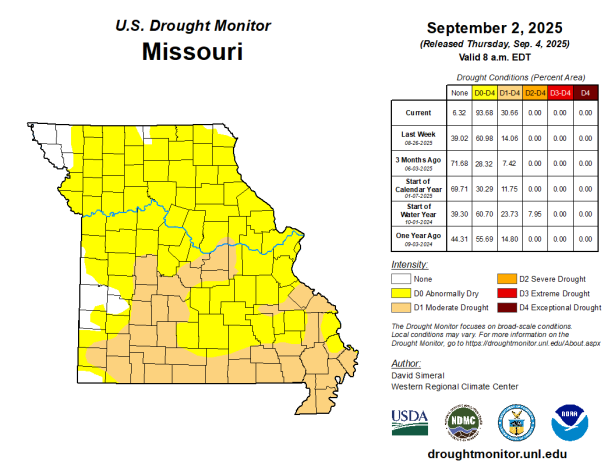
More than 90% of state in drought as harvest nears
As harvest nears, MU Extension agronomists see signs of flash drought threatening Missouri crop yields. The U.S. Drought Monitor map for Missouri released on Sept. 4 shows that 93.68% of Missouri is at least abnormally dry following an unusually wet spring.

Missouri corn adds a-maize-ing complexity to whiskey
MU Extension researchers are working to help Missouri corn growers who provide corn to distilleries for brewed corn whiskey. As of 2024, the state was home to 71 active craft distilleries. The corn whiskey business, as part Missouri’s broader distilling industry, has a substantial economic footprint.
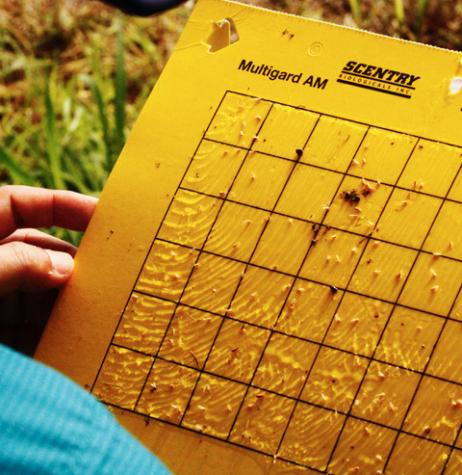
Scout crops now for corn leafhopper
Missouri growers urged to scout corn for invasive corn leafhopper, a tiny yellow pest that spreads corn stunt disease, causing deformed grain and yield loss.
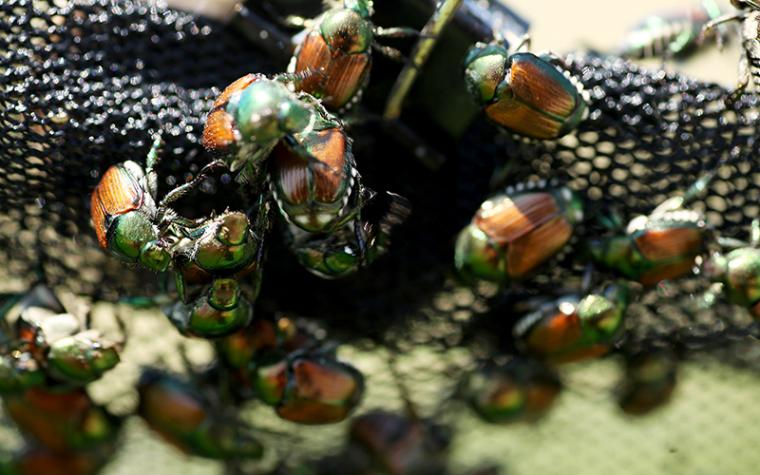
First reports of Japanese beetles received in Missouri
COLUMBIA, Mo. – University of Missouri Integrated Pest Management reports the capture of its first Japanese beetles of the season, says MU Extension crops entomologist Ivair Valmorbida. The beetles appeared in Stoddard, Barton, Christian and Holt counties, as reported by MU’s Pest Monitoring Network, which gathers information from across the state.
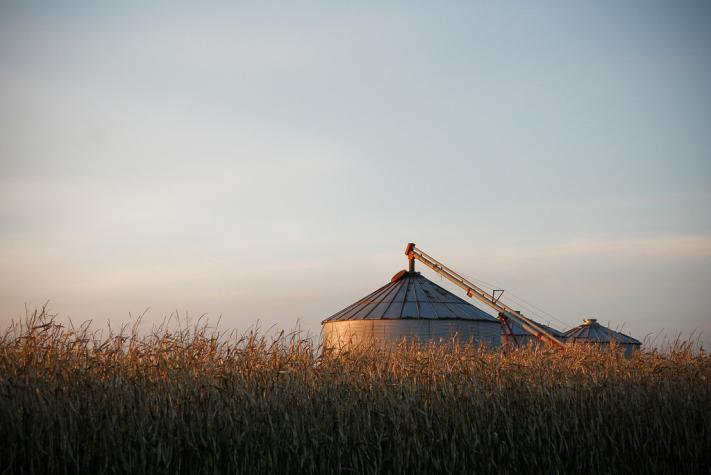
Replant or roll with it? MU guide weighs costs, payoffs
COLUMBIA, Mo. – When faced with a sparse or failed stand, crop producers have to ask themselves a difficult question: Should I replant?
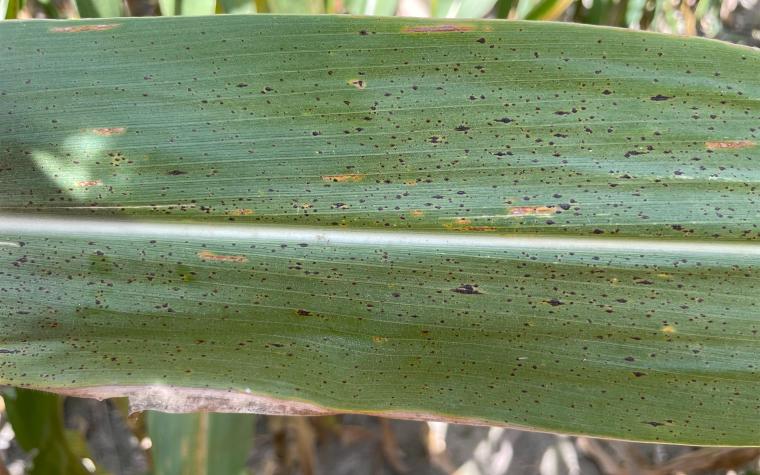
Scout deep into fields for tar spot
Good scouting is the best way to identify tar spot in corn, says University of Missouri Extension state plant pathologist Mandy Bish. Tar spot was confirmed in June of 2023 and 2024 in Missouri, which is earlier than in previous years, when the disease showed up in August or September. This earlier appearance is likely to continue because Missouri’s spring air temperatures are favorable for the disease, says Bish.
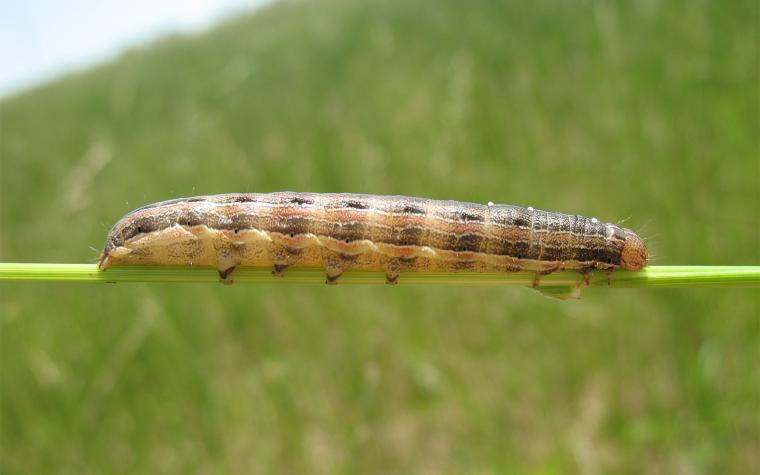
MU IPM issues pest alerts for black cutworm, true armyworm
Corn and wheat producers are alerted to emerging risks from black cutworm and true armyworm; monitor early and sign up for pest alerts.
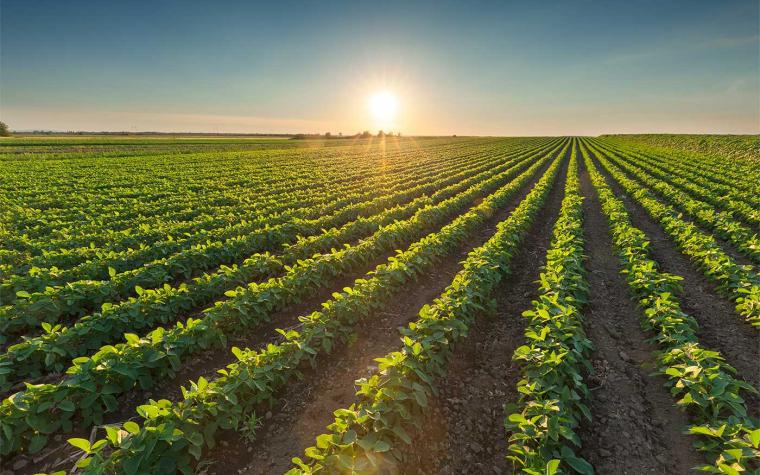
MU releases payment plan decision tool for corn, soybean, wheat
Free tool helps farmers compare PLC and ARC-CO program payments for corn, soybean, and wheat in 2025.

MU Extension guide looks at corn leafhopper
Corn leafhopper, an invasive pest in Missouri since 2024, spreads corn stunt disease, causing yield loss. Scouting and early management are crucial.
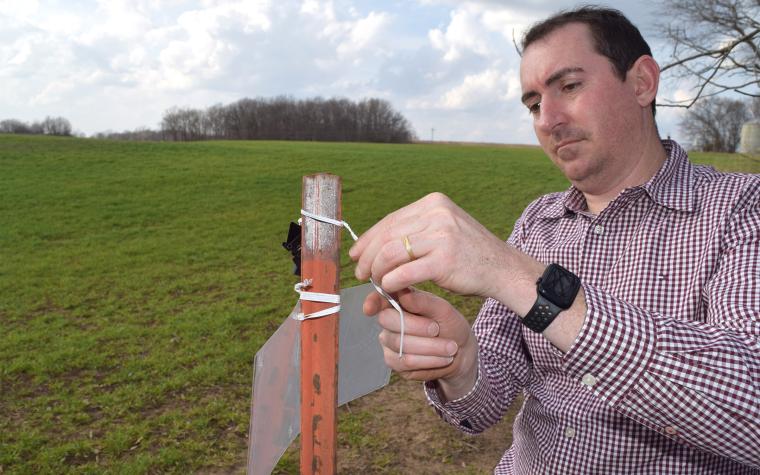
Sign up now for 2025 crop pest alerts
Sign up for free 2025 crop pest alerts to protect fields and gardens from Japanese beetles, armyworms, stink bugs, and more.
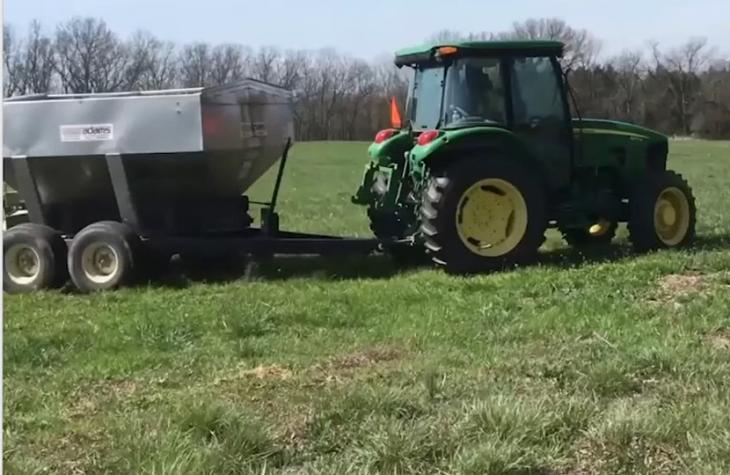
Are there opportunities to cut fertilizer costs in 2025?
Farmers may save on fertilizer in 2025 by reducing phosphorus, potassium, or lime on medium- to high-testing soils without lowering yields.
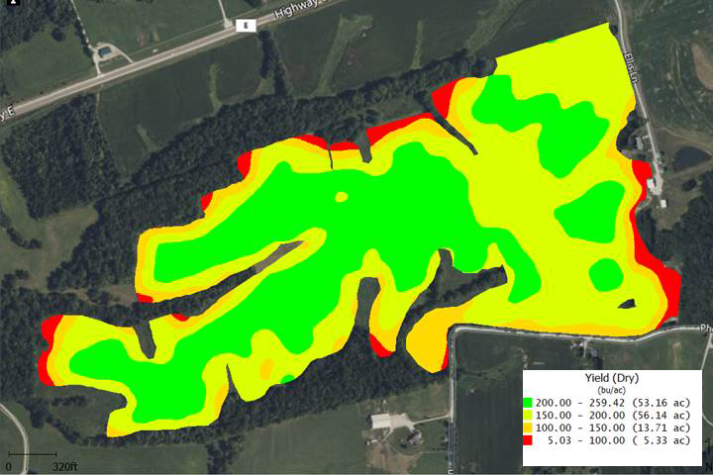
10 ways to manage high input costs in 2025
ST. JOSEPH, Mo. – University of Missouri Extension agronomist Wayne Flanary says 2025 likely will be a year when corn producers need to batten down the hatches to offset low sale prices and high input costs. MU Extension ag business economist Ben Brown and others predict that corn prices will fall below the $4.30 mark by the end of 2025, a marked drop from $6.54 per bushel in 2023.

Look for signs of corn leafhoppers in 2025
Watch for corn leafhoppers in 2025, as they spread corn stunt disease and reduce yields.
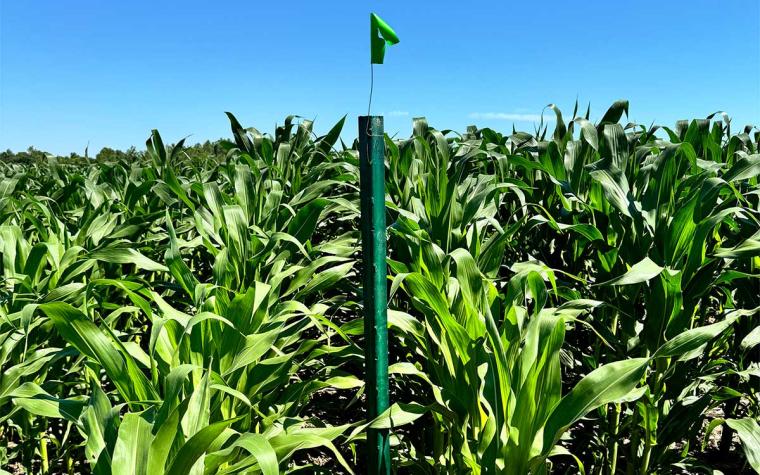
MU Extension joins multistate study of pig manure as corn fertilizer
Researchers study pig manure as a corn fertilizer to compare yields, soil nutrients, and environmental effects in a multistate project.
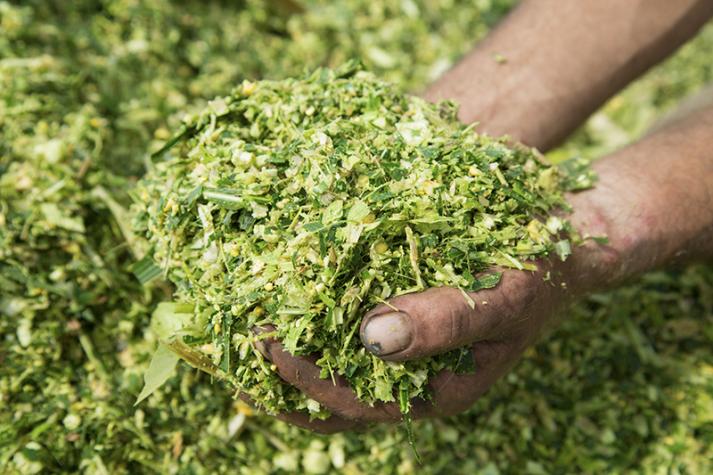
Buying corn silage to feed beef cows in winter
Farmers consider corn silage for winter: higher in digestible nutrients than hay, but costlier and spoilage-prone unless stored and hauled carefully.